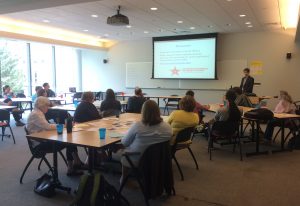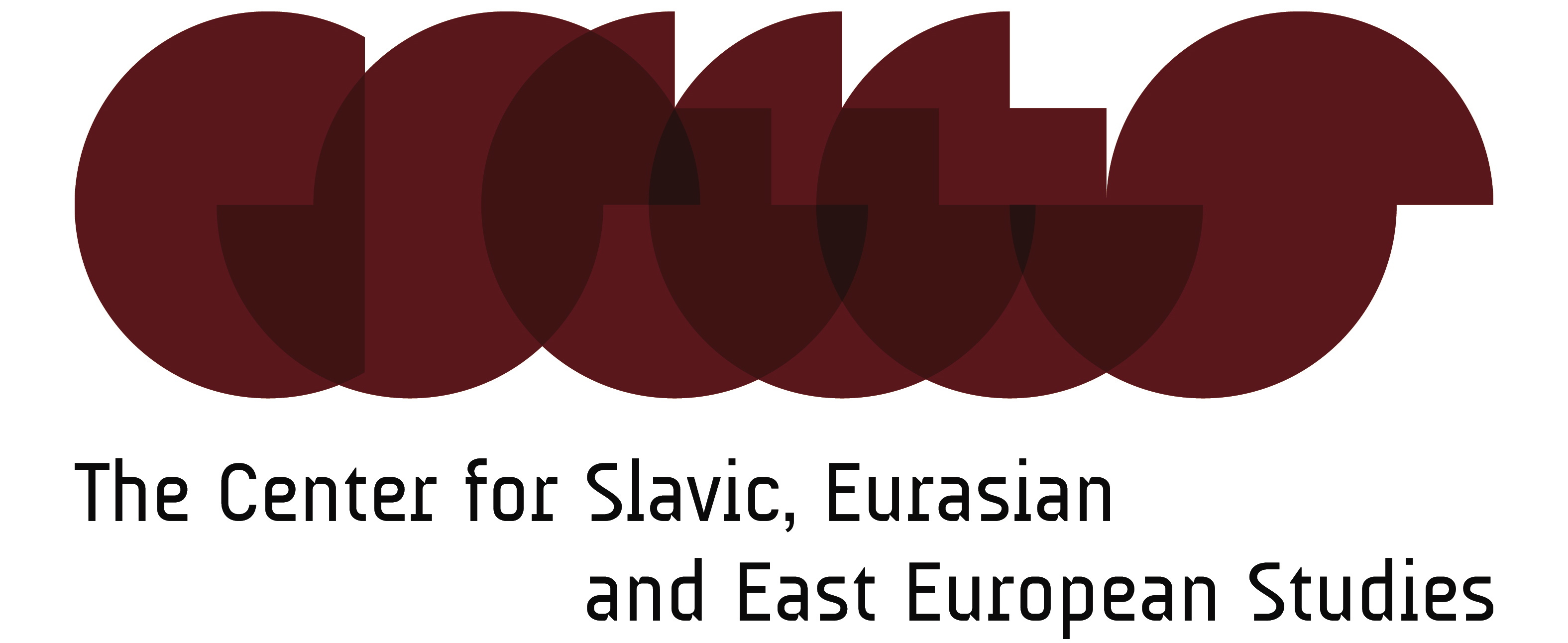The 2017 centenary of the Russian Revolution offers a timely moment to reflect on an event that fundamentally shaped the twentieth century and to examine how the revolution’s historical significance is being taught today in North Carolina’s schools. In this spirit, teachers from sixteen high schools across the state gathered on April 29 for “Russia: Then and Now – A Dialogues Seminar,” a day-long event at UNC-Chapel Hill, co-presented by the Carolina Program in the Humanities, and the UNC Center for Slavic, Eurasian, and East European Studies (CSEEES).
Aimed at deepening teachers’ knowledge of the Russian Revolution and providing them with the resources to teach about it, the seminar featured morning talks by Dr. Donald J. Raleigh (Jay Richard Judson Distinguished Professor of History, UNC) and Dr. Aaron Hale-Dorrell (CSEEES Fellow) to an audience that also included 95 community members. Raleigh, a leading specialist on the revolution, focused on the demise of imperial Russia, key figures in the revolution, and its immediate aftermath, while Hale-Dorrell discussed 1917’s complex legacy in late Soviet and post-Soviet Russia.

The morning session was followed by a teacher-training workshop, and included a diverse group of participants – from Beaufort to Charlotte, covering AP English, American History, World History, and Civics and Economics, among other subjects. Their challenges with teaching about the Russian Revolution proved equally varied.
The majority indicated that they addressed it only in the context of a larger unit, due to time constraints and rigid curriculum standards. Several of the participants were looking for new methods to introduce Russia and the Russian Revolution through a Russian perspective and, in doing so, hoped to move beyond stereotypes and the political rhetoric that so often color perceptions of both historical and contemporary Russia.
Responding to this diverse set of needs and contexts, the workshop included a simulation of a lesson plan on the Russian Revolution commissioned by CSEEES and developed in collaboration with Carolina K-12 and Daniel Miller, an English/Russian teacher at Jordan High School in Durham, NC. Assuming the role of peasants, workers, nobles, and clergymen, the participants engaged with the events of 1917 through primary sources from and about the period (images, poetry, music, and film). The lesson plan can be downloaded for free under this link.
The second half of the workshop featured a presentation of free resources to help teachers incorporate the revolution into existing lessons on World War I and North Carolina history, as well as strategies for teaching history with the help of social media. The participants learned about newspaper databases for the coverage of the Russian Revolution in local and national media at the time and an ongoing #1917LIVE Twitter and Facebook campaign that provides daily, primary source-based updates from leading figures of the revolution. The teachers saw great value in using these resources and making Russia and the 1917 revolution lasting parts of their curricula. A PowerPoint with links to free resources is available here.
The Center for Slavic, Eurasian, and East European Studies would like to thank its co-organizer, the Carolina Program in the Humanities and Carolina K-12, and the teachers who attended the workshop. The center will continue to support North Carolina educators throughout this commemorative year with additional resources, lectures, workshops, and classroom visits.
— Griffin B. Creech

